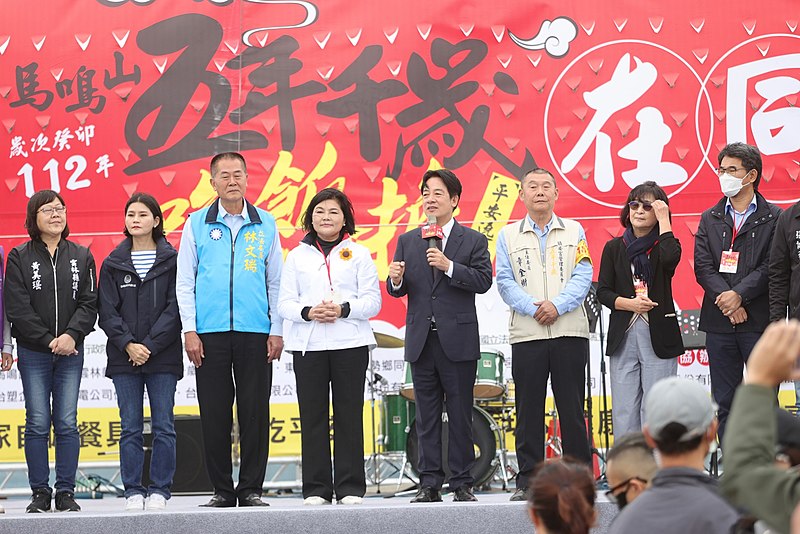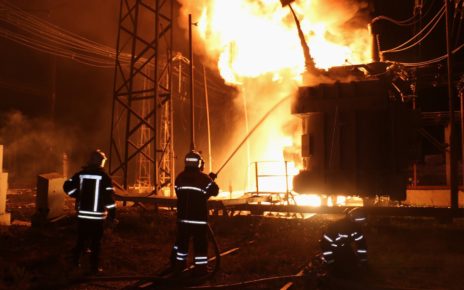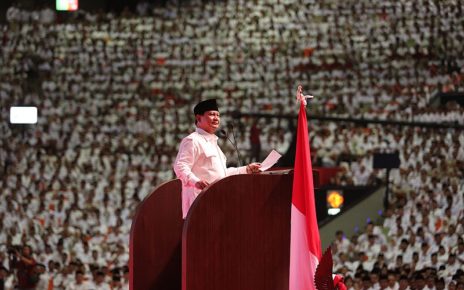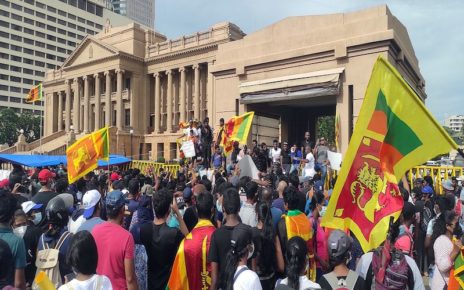Abstract:
A staunch advocate of the Republic of China (Taiwan)’s political self-determination, Lai Ching-te of the Democratic Progressive Party won the presidential election in Taiwan, leading some experts to speculate that the country could be inching closer towards an armed conflict with China. How can NATO member-states and security partners help strengthen Taiwan’s national resilience and prevent the outbreak of war in the Taiwan Strait?
Who is President-elect Lai Ching-te?
Vice President Lai Ching-te of the Democratic Progressive Party (DPP) emerged as the winner during the presidential elections in Taiwan held on January 13, 2024, with a vote share of 40.1% He bested his political rivals, New Taipei Mayor Hou Yu-ih of the Kuomintang Party (KMT), with 33.5%, and former Taipei Mayor Ko Wen-je of Taiwan People’s Party (TPP), with 26.5%. Lai will be officially inaugurated as Taiwan’s 8th president on May 20, 2024. Having framed the political contest mainly as a battle for the future of Taiwanese political sovereignty, a choice between “democracy and autocracy”, Lai won most of the votes among Taiwan’s 23.5 million population who have grown increasingly wary of Chinese President Xi Xinping’s political interference in Hong Kong and resistant to his strong-arm tactics in the Taiwan Strait. During his victory press conference with his running mate, former US envoy and Vice President-elect Hsiao Bi-khim, Lai told: “It is my important responsibility, as president, to maintain peace and stability in the Taiwan Strait.” He added that under his administration, Taipei would engage in constructive dialogue with Beijing, while remaining “determined to safeguard Taiwan from continuing threats and intimidation from China.”
Lai became a controversial figure in Taiwanese politics because of his overt statements endorsing Taiwanese independence and his tacit denial of the “One China” policy, which served as the legal and constitutional foundation for the People’s Republic of China (PRC) to extend its sovereignty over the independent island following the Chinese Civil War (1945–1949). During the question-and-answer portion at the Yuan Legislature with People First Party Legislator Chen-Yi-chieh in 2017, then Premier Lai categorically stated that “Taiwan is a sovereign nation whose official title is the Republic of China”, adding that “the two sides of the Taiwan Strait are independent of each other.” Subsequently, during a roundtable discussion with the local media in Hualien County in 2018, he depicted himself as a “political worker for Taiwanese independence” and laid down his three tenets in support of such a view: Taiwan does not require a declaration of independence because it is already a sovereign and independent country. Second, the 23 million people who live there alone have the sole authority to determine Taiwan’s future. Third, a pragmatic approach to Taiwanese independence is to further rally popular support to strengthen the country. As a result, China’s official news channel People’s Daily published in the same year that Lai must be prosecuted under PRC’s Anti-Secession Law for his alleged “separatist” remarks.
A Review of Cross-Strait Relations under Tsai
Recent Chinese provocative actions under outgoing President Tsai Ing-wen may well serve as a precedent for how China conduct its affairs with Taiwan under Lai. To recall, the PRC launched large-scale military drills after Taipei scored political breakthroughs with its security partners. Beijing’s strategic objective is to simulate the omnidirectional encirclement of the self-ruling island and send a stern message that it is willing and capable of using brute force to carry out “national reunification” once it declares formal independence. In August 2022, United States House Speaker Nancy Pelosi paid a visit to Taiwan—the first Speaker of House of Representatives to do so in 25 years—as part of her Asia trip and pledged “ironclad” support for the democratic government. Soon after, the People’s Liberation Army (PLA)’s Eastern Theatre Command fired 11 Dongfeng ballistic missiles, including the anti-ship intermediate range DF-21 aimed at deterring the US Navy and its aircraft carrier strike groups. It also flew four drones over the islets next to Taiwan-controlled island of Kinmen off the Chinese coastal city of Xiamen, and sent 22 fighter jets across the median line as a massive show of force.
The PRC also displayed military assertiveness in response to Tsai’s and Lai’s transits to the United States. After Tsai’s 10-day visit to Central America and meeting with House Speaker Kevin McCarthy at the United States, the PLA launched its three-day military exercises dubbed as “United Sharp Sword” in April 2023. This involved 71 Chinese warplanes crossing the Taiwan Strait, with 45 entering Taipei’s air defence identification zone, and nine naval vessels. Then in August 2023, the PLA launched another joint naval and air combat readiness patrols around the island which included 42 Chinese aircraft and eight ships, in response to then Vice President Lai’s transit to the United States during his Paraguay trip and the shoring up of trilateral security alliance between Washington, Seoul and Tokyo at Camp David. The latest military drills focused on improving the PLA’s ship-aircraft coordination, enhancing anti-submarine capabilities, and seizing control of Taipei’s northern (East China Sea) and southwestern (Luzon Strait) passageways which, in effect, will cripple the latter’s sea lanes of communication (SLOCs).
Furthermore, the PRC sought to leverage its economic and diplomatic prowess to punish Taiwan in bilateral trade and exclude the latter in multilateral fora. China’s Ministry of Commerce suspended the institutionalized consultation mechanism between the two nations. In the wake of Pelosi’s visit to the island-nation, Beijing blocked trade on certain goods, such as citrus fruit, cold-chain fish, and processed food imports, while it stopped the export of natural sand—a critical component in chip production to Taipei. On the multilateral front, only nine countries—with New Zealand and Singapore as the only two developed countries—agreed to sign free trade agreements with Taipei under the World Trade Organization (WTO) framework. Also, Beijing actively pushed for Taipei’s omission from multilateral trading blocs, such as the Comprehensive and Progressive Agreement for Trans-Pacific Partnership (CPTPP) and the Regional Comprehensive Economic Partnership (RCEP). Taiwan was also denied to participate and share its best practices in containing the COVID-19 pandemic and facilitating economic recovery during the World Health Organization (WHO)’s annual assembly in 2022 after the PRC carried out a diplomatic campaign to isolate the self-ruling island. In another huge blow, the Pacific Island state of Nauru severed its official relations with Taiwan and formally established ties with the PRC days after the presidential election, leaving Taipei with only 12 diplomatic allies, such as the Vatican City and a handful of countries in the Pacific Ocean and Latin America.
Aside from exerting military and economic pressure, the PRC also carried out multi-pronged, foreign influence operations to widen the ideological rift between competing political elite and persuade the Taiwanese population to support the cause of peaceful reunification with Beijing. Latest recorded activities of domestic interference were aimed at discrediting Lai and the DPP, and swaying popular opinion towards Beijing-friendly candidate Hou and the KMT months before the national elections. First, Tim Niven, head of research at Taiwan’s Doublethink Lab, exposed that Chinese propagandists also sought to amplify authentic local disputes among candidates who are critical of Beijing by gathering their most incendiary comments on talk shows and putting misleading summaries. Second, a national security official based in Taipei who chose to remain anonymous disclosed that fake videos of Tsai were maliciously created through generative artificial intelligence (AI). The Secret History of Tsai Ing-wen, a 300-page document that contains rumors and negative content published on Zenodo, an online open repository, was converted into videos with AI-generated voiceovers and fake hosts, and mass disseminated on YouTube, Instagram, X, and other social media platforms through the use of complex bots and algorithms, and bore the characteristic traits of information operations by the Chinese Ministry of State Security.
Strategic Implications
Given Lai’s strategic clarity on Cross-Strait relations and sworn commitment to maintain Tsai’s foreign policy of balancing against the PRC, it is highly likely that Beijing will respond by intensifying its ongoing triple-track strategy of military/paramilitary coercion, economic/diplomatic isolation, and foreign influence operations against Taipei in the next four years. This could increase the likelihood of a miscalculation by both parties that could lead to a full-scale military conflict. The outbreak of war in the Taiwan Strait could further tax an already militarily overburdened Washington that continues to support Ukraine’s war of resistance against Russia while engulfed in a new wave of political violence in the Middle East in the wake of Hamas’ surprise terrorist attack on Israel in October 2023. According to Bloomberg Economics, a full-scale invasion of the self-ruling island could inflict a heavy price tag of around US$10 trillion or equivalent to 10% of global GDP—a staggering amount dwarfing the cost of recent shocks such as COVID-19 pandemic and Russia-Ukraine war. The greatest economic disruption would come from the semiconductor supply chains and related downstream industries since Taipei is home to Taiwan Semiconductor Manufacturing Company (TSMC)—the world’s largest contract chip maker and the top supplier to Apple and other American companies, and accounting for the production of roughly 35% of automotive microcontrollers and 70% of smartphone chipsets as well as high-end graphics processing units in PCs and servers.
On the broader geopolitical contest, a successful Chinese military blockade or invasion of Taiwan would deal a severe blow of epic proportions to the rules-based international order (RBIO) as it will: re-legitimize the overthrow of a democratically-elected government and the use of brute force to settle political disputes; pave way for the full imposition of Chinese domestic law over Taipei and surrounding waters; nullify the United Nations Convention on the Law of the Seas (UNCLOS) as the internationally accepted legal basis for settling maritime delimitation issues; restrict the maneuvering space of the US Seventh Fleet and other friendly navies to conduct freedom of navigation operations (FONOPS) along the high seas and protect the global commons in the Western Pacific; and disrupt the complex logistical networks and rotational troop deployments between the United States and its Indo-Pacific allies, Japan, South Korea, and the Philippines along the First Island Chain for collective defence. The collapse of the RBIO vis-à-vis the permissiveness on PRC’s assertive behavior could also have a possible domino effect: It will most likely embolden Beijing to settle its other territorial and maritime disputes through gunboat diplomacy, such as in the Spratly/Kalayaan Group of Islands in the South China Sea, Senkaku/Diaoyu Islands in the East China Sea, and Natuna Islands in Indonesian waters, further causing regional instability and uncertainty.
Preserving the Peace in the Taiwan Strait Under Lai
Given the high economic and geopolitical stakes involved in the Taiwan Strait crisis, the United States and other NATO member-states and security partners must lend its full support to Taiwan’s military modernization drive and integrated deterrence posture. These are aimed at raising the prohibitive cost for the PRC to conduct a military blockade or invasion, and incentivize the latter to return to the negotiating table to manage, if not resolve, the crisis. The Biden administration should follow through on its proposed US$2 billion plus package in weapons transfer to Taiwan through the Foreign Military Sales program which includes weapons systems or support services for tanks, combat vehicles, howitzers, ships, and Patriot air defence systems aimed at enhancing Taipei’s territorial and homeland defence strategy. In addition, it must help reinforce Taiwan’s power projection capabilities by reviving the previous US$18 billion plus worth in FMS program notifications under the Trump administration which shall facilitate the sale of F-16 fighter aircraft, Army Tactical Missile Systems and Standoff Land Attack Missile Expanded Response. Lastly, it must enhance bilateral maritime cooperation between the United States Coast Guard and Taiwan Coast Guard through the Coast Guard Working Group (CGWG) meeting which was first convened in 2021. Such framework aims to coordinate their efforts on countering hybrid threats at sea through: enhanced maritime law enforcement; protection of maritime resources; and reduction of illegal, unreported, and unregulated (IUU) fishing.
Also, the United States must reconsider the revival and implementation of the bill, Taiwan Policy Act of 2022, which aims to designate Taiwan as a “major non-NATO ally”. This will establish the latest framework for joint military training, planning and exercises with Washington together with other NATO member-states and security partners. This will also help expedite the modernization of Taiwan’s defence capabilities through the provision of up to US$4.5 billion in Foreign Military Financing over four fiscal years and an additional US$2 billion in loans with non-repayable military assistance in terms of supply and stockpiling of ammunitions. Furthermore, the United States should encourage the participation of Taiwan, first as an observer, in the emerging minilateral security arrangements in the Indo-Pacific region, such as the US-Japan-South Korea Trilateral Security Partnership, US-Australia-India-Japan Quadrilateral Security Dialogue (QUAD), and US-Australia-US Trilateral Security Partnership (AUKUS) to learn about the best practices of democratic allies in intelligence sharing, military interoperability, and integration of security and defence-related science, technology, industrial bases, and supply chains. In addition, it should institutionalize the inclusion of Taiwan within the US nuclear umbrella—following South Korea and Japan as relatively successful precedents—to offset the PRC’s quantitative military advantage, dissuade the PLA from carrying out a full-scale military blockade or invasion, and maintain strategic balance in the Taiwan Strait. Lastly, it could facilitate the expansion of research and development collaboration between Taiwan’s national defence industry led by the National Chung-San Institute of Science and Technology with NATO’s Defence Innovation Accelerator for the North Atlantic (DIANA), particularly in countering threats brought about by Beijing’s disruptive technologies and emerging capabilities, such as drone swarms, hypersonic missiles, and chemical, biological, radiological, and nuclear (CBRN) weapons.
Furthermore, Taiwan must sustain the diversification of its global trade and investments to reduce its overreliance on the Chinese market and minimize the external shocks brought about by Xi administration’s politicization of Cross-Strait economic relations. Here, the Lai administration must build upon the gains of the Tsai administration in implementing the New Southbound Policy (NSP) in September 2016 which aims to deepen Taipei’s regional economic integration with the ten member-states of Association of Southeast Asian Nations (ASEAN), six states in South Asia (India, Pakistan, Bangladesh, Nepal, Sri Lanka, and Bhutan), Australia, and New Zealand. It must follow through on the US-Taiwan Initiative on the 21st Century Trade signed in June 2023 which seeks to improve customs administration and trade facilitation, maximize opportunities for small- and medium-sized enterprises (SMEs) trade and investment, and curb corruption. Also, it must renew its push for inclusion into the Indo-Pacific Economic Framework for Prosperity (IPEF) which seeks to promote regional economic growth, development and cooperation of all member-states on four pillars, namely: trade; supply chains; clean energy, decarbonization, and infrastructure; and tax and anti-corruption. In addition, it must move ahead with the adoption of the resolution at the European Parliament last December 2023 calling for: expansion of economic trade relations between Taiwan and the European Union; signing of a formal bilateral investment agreement that will ensure the diversification of their supply chains; and support to the participation of Taipei in international organizations, such as the World Health Assembly.
Lastly, the Lai administration must reinforce the Taiwanese government’s existing internal mechanisms of information verification through official state channels, such as the Executive Yuan’s “clarified message forum”. Furthermore, it must continue to work closely with the local and international media, business sector, civil society groups, academia, and the general population in detecting and discrediting disinformation in various social media platforms, and handing over informational disputes to the Institution of Watch Internet Network (iWIN). To ensure that these critical information verification channels remain operational 24/7, Taiwan must partner closely with the United States, NATO, and the European Union in beefing up its cyber infrastructure to detect and neutralize Advanced Persistent Threats (APTs, active state-sponsored malware campaigns). Washington must elevate the Taiwan Cybersecurity Resiliency Act of 2023 as a priority bill which seeks to expand cybersecurity cooperation activities between the US Department of Defence and the Government of Taiwan. Once passed, the Secretary of Defence will be vested with powers to leverage United States commercial and military cybersecurity technology and services to harden and defend such networks, infrastructure, and systems. Furthermore, the NATO Cooperative Cyber Defence Centre of Excellence may opt to consider extending regular invitation to the Taiwanese government for joint cyber defence research, training and exercises. Given the latest technological advancements in Artificial Intelligence (AI) and its nascent incorporation into Chinese foreign influence operations, Taiwan may consider adopting the European Union model’s centralized approach to regulating AI. The pending bill, Artificial Intelligence Act, will lay down a clear, top-down legal framework to assess the risk levels and determine the ethical use of AI, protect data privacy and security, and penalize malicious AI creators and users.
Per Virtutem Pax (Peace through Strength)
Arguably, the democratic election of Vice President Lai Ching-Te as Taiwan’s incoming President could chart the path of Cross-Strait relations towards greater political confrontation, as the PRC is highly likely to intensify its military/paramilitary coercion, economic/diplomatic isolation, and foreign influence operations against the self-ruling island. This could raise the likelihood of miscalculation which, in turn, may raise the specter of a full-scale military blockade or invasion in the bid of Chinese President Xi Xinping for “national reunification.” Given the high economic and geopolitical stakes of such an armed conflict akin to David versus Goliath, it would be in the best interest for the United States and other NATO member-states and security partners to contribute largely to Taiwan’s military modernization, integrated deterrence, economic de-risking, and counter-foreign interference. These four strategic interventions could possibly raise Beijing’s risk calculus, constrain its assertive behavior, and compel it to return to the negotiating table to manage the crisis and explore new channels of bilateral cooperation with Taipei.
Photo: President-elect Lai Ching-Te delivering a speech at the Shoulder Pole Rice Eating in Yunlin County, Taiwan (2023) by Simon Liu via Creative Commons licensed under CC Attribution 2.0 Generic.




